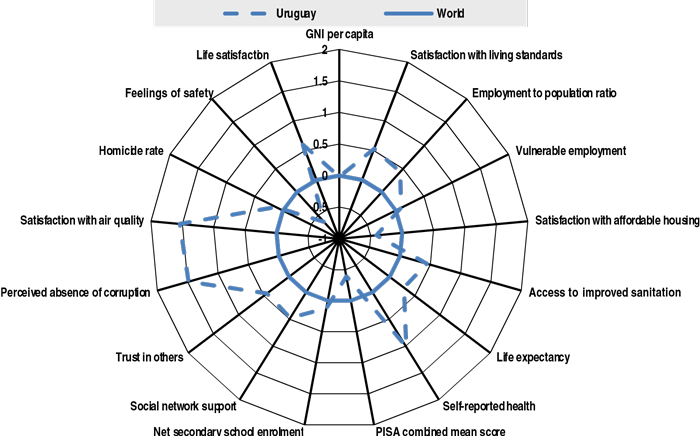Publications

Multi-dimensional Review of Uruguay
Volume 1: Initial Assessment
Uruguay has made remarkable progress over the past decade. Stable macroeconomic policies
and a favourable external environment have permitted brisk growth and the financing
of social policies. Substantial improvements in several dimensions of human well-being
have occurred during this period, alongside considerable reductions in external risks.
The conditions ahead, however, may present challenges to maintaining performance.
Overcoming these challenges will require finding the appropriate balance between long
run objectives and macroeconomic and fiscal stability.
One of the main obstacles to economic growth is the insufficient and inadequate provision
of human capital and skills. A number of challenges remain for education, which, together
with fiscal policy, are key means of reducing inequalities and sustaining economic
growth. In addition, Uruguay needs to address labour shortages to avoid constraints
on future growth, especially as exports become more skills-intensive. It is important
to orient social policies and expenditures towards the most vulnerable groups.
Published on August 14, 2014Also available in: Spanish
In series:OECD Development Pathwaysview more titles
TABLE OF CONTENTS
| Foreword | |
| Acronyms and abbreviations | |
| Editorial | |
| Facts and figures of Uruguay | |
| Executive summary | |
| How's life in Uruguay? Historical performance and an assessment of well-being outcomes | |
| Structural trends and economic performance in Uruguay | |
| Inequalities in Uruguay | |
| Macroeconomic policies for sustaining growth and social inclusion in Uruguay |
Powered by OECD iLibrary
